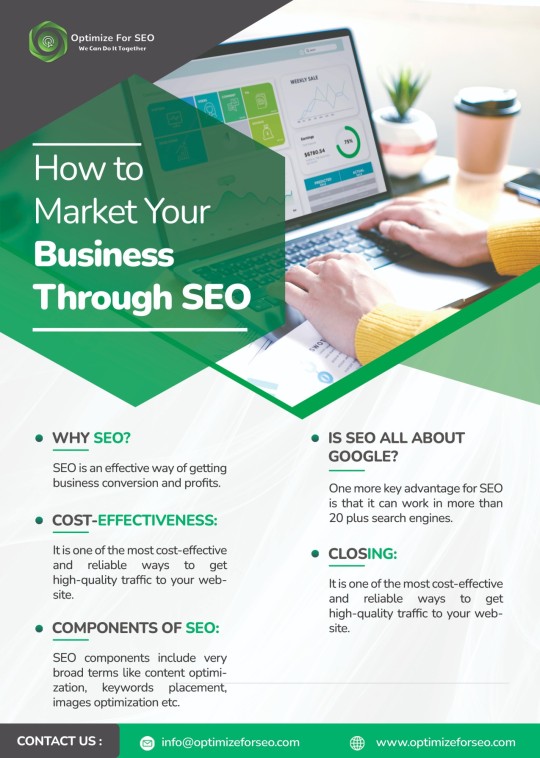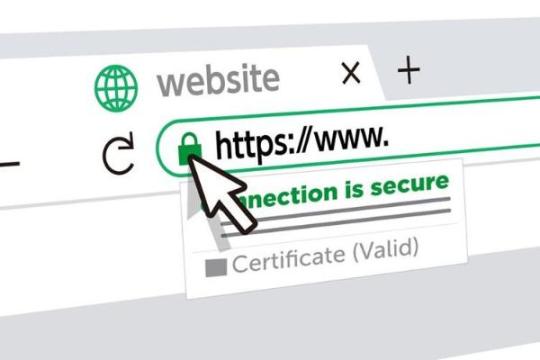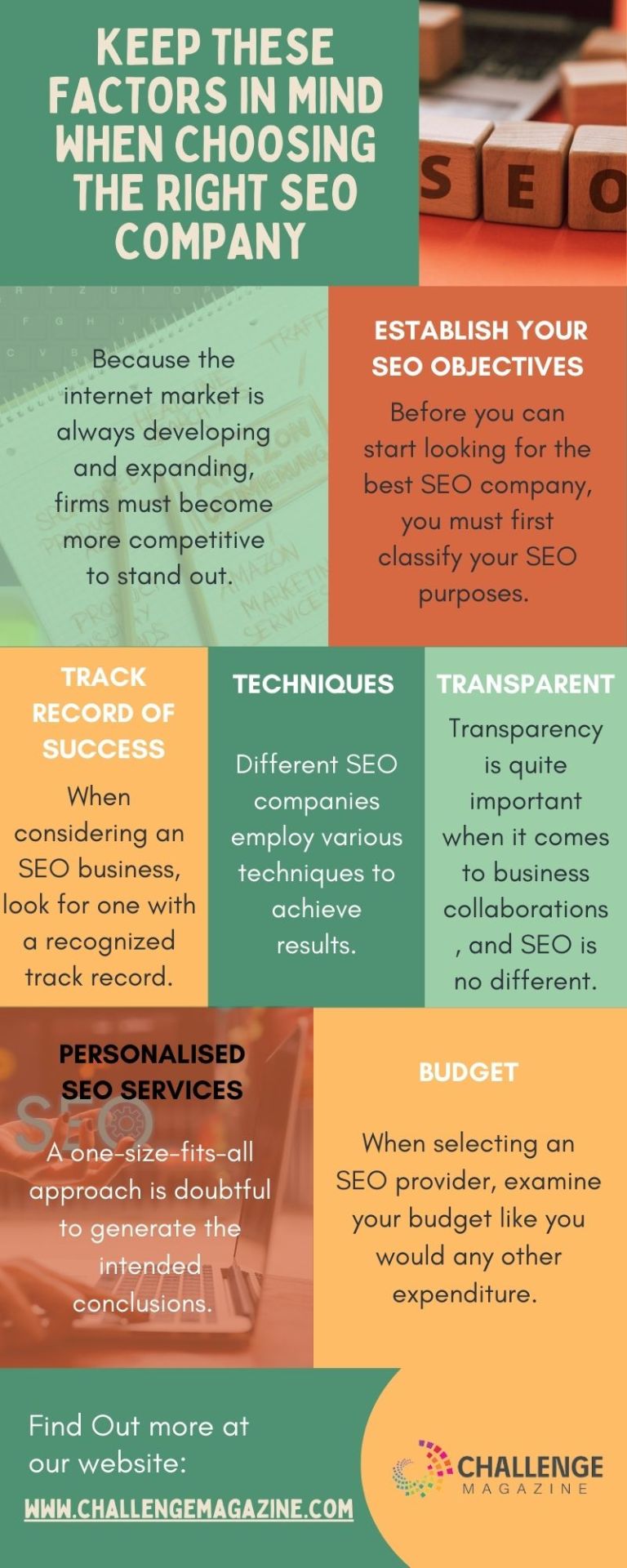#seo business
Explore tagged Tumblr posts
Text
Conduct a Marketing Skills Gap Analysis for Your Team For 2024–2025

Introduction to Marketing Skills Gap Analysis
A marketing skills gap analysis is a structured process to identify the difference between the skills your team currently has and the skills they need to achieve your organization’s goals. This analysis allows you to recognize areas where your team is excelling and areas where they may require additional training or new hires. For example, if your company’s goals involve expanding e-commerce packages, ensuring you have SEO specialists in India and proficient web design experts on the team becomes critical
Why Conduct a Skills Gap Analysis?
There are several compelling reasons to conduct a skills gap analysis:
Adapt to Industry Changes: With digital marketing, social media trends, and SEO practices evolving, a skills gap analysis helps ensure your team stays relevant. Optimize Training Investments: Focus resources on the areas that matter most to your team’s success. Enhance Team Performance: By aligning skills with objectives, your team can work more efficiently, leading to better results for your organization. Increase Employee Satisfaction: When team members feel supported in skill-building, they tend to be more engaged and motivated.
Step 1: Identify Essential Marketing Skills
The first step in any marketing skills gap analysis is to identify the skills necessary for your team to succeed. This varies depending on your company’s goals, industry trends, and the types of marketing services your organization focuses on.
1. List Core Marketing Skills
Start by listing essential skills across all major areas of digital marketing. Consider digital marketing, social media marketing, web design and development, SEO, and e-commerce strategies. Identify the technical, creative, and analytical skills each area requires. Examples of core marketing skills:
Effective SEO involves thorough keyword analysis, optimizing on-site elements, developing a solid content strategy, and leveraging analytics for continuous improvement
Social Media Marketing: Content creation, audience engagement, campaign planning, data analysis Web Design and Development: UI/UX design, coding languages, mobile optimization, site speed management E-commerce: Conversion rate optimization, product page design, funnel optimization, user behavior analysis Google My Business (GMB) Profile Management: Optimization, analytics, customer review management
2. Align Skills with Business Objectives
Identify which skills align closely with your business goals. For instance, if your goal is to increase visibility on search engines, you’ll need strong SEO skills and possibly a top SEO expert on the team. If you’re expanding into e-commerce packages, then understanding customer purchasing behavior and web development will be essential.
3. Define Future-Oriented Skills
Consider the skills that may be important in the future. For instance, as digital marketing evolves, skills in data science, AI-powered analytics, or video production might become necessary. Adding these skills to your list prepares your team for upcoming challenges.
Step 2: Assess Your Team’s Current Skills
Once you’ve identified the necessary skills, the next step is to gauge where your team currently stands in each area. This phase provides a snapshot of your team’s strengths and areas for improvement.
1. Self-assessments and Manager Evaluations
Have team members complete self-assessments to rate their proficiency in various areas. You can use tools like skills assessment questionnaires or a simple rating scale to make this process more structured. Additionally, gather input from managers who can provide an objective perspective on team capabilities.
2. Analyze Previous Performance
Review recent projects or campaigns to assess skills in action. For instance, if your team recently executed a social media marketing campaign, evaluate how effectively they managed audience engagement, content creation, and performance tracking.
3. Skills Assessment Tools
Consider using professional skills assessment tools or platforms. These tools often offer assessments specifically for digital marketing, covering skills like SEO, social media, and content marketing. Platforms like LinkedIn Learning, HubSpot Academy, and Google Analytics Academy provide courses and certification programs to help you evaluate skills more accurately.
Step 3: Analyze the Skills Gap
After collecting data on your team’s current skill levels, the next step is to compare these findings against the essential skills list. This gap analysis reveals exactly where development is needed.
1. Identify Gaps by Skill Area
Review the core skill areas — such as SEO, web design, and e-commerce — and note where there are discrepancies between current capabilities and required proficiency. For instance, if your team lacks a solid foundation in GMP Profile management or SEO specialization, these should be flagged as priority areas.
2. Prioritize Gaps Based on Impact
Not all skill gaps are equally urgent. Prioritize based on impact. For example, a deficiency in SEO experts may need immediate attention if your business relies heavily on organic traffic. Similarly, lacking social media skills could be a pressing concern if your brand’s growth relies on social media marketing.
3. Quantify the Gap
Consider assigning each gap a numerical value to quantify the extent of the skills gap. For example, a gap score of 1 might mean slight improvement is needed, while a score of 5 could indicate a significant gap requiring immediate attention.
Step 4: Create a strategy to close the gap.
Now that you know where the skill gaps lie, it’s time to develop a strategy to bridge these gaps. Your plan may involve training programs, hiring new team members, or even reorganizing responsibilities within the team.
1. Create a Training Roadmap
Design a training program that addresses the specific gaps identified. For instance, if your team needs to improve in SEO or web development, you might allocate time and resources for online courses, webinars, or workshops. Combine both face-to-face and virtual training methods to accommodate various learning preferences.
2. Invest in Relevant Tools and Resources
Consider investing in tools that can help your team grow. For instance, SEO tools like SEMrush or Ahrefs, social media management tools like Hootsuite, and web development resources are essential for building up the team’s skill set in these areas. These tools not only streamline tasks but also offer learning opportunities through built-in tutorials and analytics.
Introduction to Marketing Skills Gap Analysis
A marketing skills gap analysis is a structured process to identify the difference between the skills your team currently has and the skills they need to achieve your organization’s goals. This analysis allows you to recognize areas where your team is excelling and areas where they may require additional training or new hires. For example, if your company’s goals involve expanding e-commerce packages, ensuring you have SEO specialists and proficient web design experts on the team becomes critical.
Why Conduct a Skills Gap Analysis?
There are several compelling reasons to conduct a skills gap analysis:
Adapt to Industry Changes: With digital marketing, social media trends, and SEO practices evolving, a skills gap analysis helps ensure your team stays relevant. Optimize Training Investments: Focus resources on the areas that matter most to your team’s success. Enhance Team Performance: By aligning skills with objectives, your team can work more efficiently, leading to better results for your organization. Increase Employee Satisfaction: When team members feel supported in skill-building, they tend to be more engaged and motivated.
Step 1: Identify Essential Marketing Skills
The first step in any marketing skills gap analysis is to identify the skills necessary for your team to succeed. This varies depending on your company’s goals, industry trends, and the types of marketing services your organization focuses on.
1. List Core Marketing Skills
Start by listing essential skills across all major areas of digital marketing. Consider digital marketing, social media marketing, web design and development, SEO, and e-commerce strategies. Identify the technical, creative, and analytical skills each area requires.
Examples of core marketing skills:
Effective SEO involves thorough keyword analysis, optimizing on-site elements, developing a solid content strategy, and leveraging analytics for continuous improvement Social Media Marketing: Content creation, audience engagement, campaign planning, data analysis Web Design and Development: UI/UX design, coding languages, mobile optimization, site speed management E-commerce: Conversion rate optimization, product page design, funnel optimization, user behavior analysis Google My Business (GMB) Profile Management: Optimization, analytics, customer review management
2. Align Skills with Business Objectives
Identify which skills align closely with your business goals. For instance, if your goal is to increase visibility on search engines, you’ll need strong SEO skills and possibly a top SEO expert on the team. If you’re expanding into e-commerce packages, then understanding customer purchasing behavior and web development will be essential. 3. Define Future-Oriented Skills Think about the abilities that could be essential in the coming years. For instance, as digital marketing evolves, skills in data science, AI-powered analytics, or video production might become necessary. Adding these skills to your list prepares your team for upcoming challenges.
Step 2: Assess Your Team’s Current Skills
Once you’ve identified the necessary skills, the next step is to gauge where your team currently stands in each area. This phase provides a snapshot of your team’s strengths and areas for improvement.
1. Self-assessments and Manager Evaluations
Have team members complete self-assessments to rate their proficiency in various areas. You can use tools like skills assessment questionnaires or a simple rating scale to make this process more structured. Additionally, gather input from managers who can provide an objective perspective on team capabilities.
2. Analyze Previous Performance
Review recent projects or campaigns to assess skills in action. For instance, if your team recently executed a social media marketing campaign, evaluate how effectively they managed audience engagement, content creation, and performance tracking.
3. Skills Assessment Tools
Consider using professional skills assessment tools or platforms. These tools often offer assessments specifically for digital marketing, covering skills like SEO, social media, and content marketing. Platforms like LinkedIn Learning, HubSpot Academy, and Google Analytics Academy provide courses and certification programs to help you evaluate skills more accurately.
Step 3: Analyze the Skills Gap
After collecting data on your team’s current skill levels, the next step is to compare these findings against the essential skills list. This gap analysis reveals exactly where development is needed.
1. Identify Gaps by Skill Area
Review the core skill areas — such as SEO, web design, and e-commerce — and note where there are discrepancies between current capabilities and required proficiency. For instance, if your team lacks a solid foundation in Google My Business Management or SEO specialization, these should be flagged as priority areas.
2. Prioritize Gaps Based on Impact
Not all skill gaps are equally urgent. Prioritize based on impact. For example, a deficiency in SEO expertise may need immediate attention if your business relies heavily on organic traffic. Similarly, lacking social media skills could be a pressing concern if your brand’s growth relies on social media marketing.
3. Quantify the Gap
Consider assigning each gap a numerical value to quantify the extent of the skills gap. For example, a gap score of 1 might mean slight improvement is needed, while a score of 5 could indicate a significant gap requiring immediate attention.
Step 4: Create a strategy to close the gap.
Now that you know where the skill gaps lie, it’s time to develop a strategy to bridge these gaps. Your plan may involve training programs, hiring new team members, or even reorganizing responsibilities within the team.
1. Create a Training Roadmap
Design a training program that addresses the specific gaps identified. For instance, if your team needs to improve in SEO or web development, you might allocate time and resources for online courses, webinars, or workshops. Combine both face-to-face and virtual training methods to accommodate various learning preferences.
2. Invest in Relevant Tools and Resources
Consider investing in tools that can help your team grow. For instance, SEO tools like SEMrush or Ahrefs, social media management tools like Hootsuite, and web development resources are essential for building up the team’s skill set in these areas. These tools not only streamline tasks but also offer learning opportunities through built-in tutorials and analytics.
Conclusion
A comprehensive marketing skills gap analysis is more than just a box to check; it’s a strategic process that positions your team to meet the evolving demands of the digital landscape. By identifying skill gaps within your team, you’re ensuring that each member has the tools and knowledge needed to succeed and creating a culture of growth and improvement that directly benefits your business.
#seo services#seo business#seo packages#digital marketing#search engine marketing#ecommerce#seo techniques#software engineering#digital marketing services#web development#Digital marketing agency#Social media services#SMO packages#web hosting plans#PPC management
2 notes
·
View notes
Text
Social Media Mastery: Unlocking the Secrets to Business Growth

In this post, we will equip you with valuable insights and actionable strategies to effectively utilize social media platforms and take your business to new heights. So, let's embark on this exciting journey of leveraging social media for business success!
Understand Your Audience: The first step towards harnessing social media's power is gaining a deep understanding of your target audience. Identify their preferences, behaviors, and pain points to craft tailored content that resonates with them. Engage in market research and leverage social media analytics tools to gather valuable data and insights that will inform your content strategy.
Choose the Right Platforms: Not all social media platforms are created equal, and each offers unique advantages depending on your business type and target audience. Research and select platforms that align with your brand image and cater to your audience's preferences. Whether it's Facebook, Instagram, Twitter, LinkedIn, or a combination of platforms, focus on quality over quantity.
Develop a Consistent Brand Presence: Consistency is key in building a strong brand presence on social media. Maintain a cohesive visual identity, including your logo, color palette, and brand voice. Craft compelling and shareable content that reflects your brand's values and resonates with your audience. Consistency builds trust and fosters a loyal community around your business.
Engage and Interact: Social media is not just a broadcasting platform; it's a space for meaningful interactions. Respond promptly to comments, messages, and mentions, showing genuine interest in your audience. Encourage conversations, ask questions, and create polls to spark engagement. Building relationships and fostering a sense of community will drive brand loyalty and word-of-mouth marketing.
Utilize Content Marketing Strategies: Create a content strategy that aligns with your business goals and caters to your audience's interests. Share valuable, informative, and entertaining content that adds value to their lives. Leverage a mix of formats such as articles, videos, infographics, and user-generated content. Incorporate storytelling techniques to humanize your brand and connect emotionally with your audience.
Leverage Influencer Marketing: Influencer marketing can be a powerful tool to amplify your brand's reach and credibility. Collaborate with relevant influencers in your industry who have an engaged following. Seek authentic partnerships that align with your brand values and ensure that their audience matches your target demographic. Influencers can help you expand your reach, build trust, and generate sales.
Advertise Strategically: Social media platforms offer robust advertising capabilities that allow you to target specific demographics, interests, and behaviors. Develop well-crafted ad campaigns with compelling visuals and persuasive copy. Continuously monitor and optimize your ads based on performance metrics, ensuring that they align with your overall marketing goals.
Analyze and Adapt: Regularly monitor your social media analytics to measure the effectiveness of your strategies. Track engagement, reach, conversion rates, and other relevant metrics to gain insights into what is working and what needs improvement. Use these insights to adapt your approach, refine your content strategy, and optimize your social media efforts.
Conclusion: Social media presents a vast playground for business
Incorporating social media into your business growth strategy can be a game-changer, opening up endless opportunities for success. By implementing the strategies outlined in this blog post, you are on your way to maximizing your business's potential in the digital realm.
If you're ready to take your business to new heights with social media, we invite you to take the next step. Eunie SEO Specialist is a leading digital marketing agency that specializes in social media optimization and growth strategies. Our team of experts is ready to partner with you, providing tailored solutions to help you thrive in the ever-evolving social media landscape.
To embark on this exciting journey and transform your business, reach out to Click2Rise today. Contact us at 0975 3603 574 or send an email to [email protected]. Let's rise together!
Remember, the power of social media is within your reach. Don't miss out on the opportunity to leverage it and propel your business towards remarkable growth.
#seo services#seo agency#seo marketing#freelance seo specialist#seo consultant#best seo services#local seo experts#seo business#linkbuilding#affordable seo#seo company
9 notes
·
View notes
Text
Important SEO Strategy and SEO Techniques
Read the SEO strategy and techniques in a detailed manner. Know why seo service is important and what points you need to follow when you hire any seo company. Visit my blog and see the facts about SEO and how you can analyze the efforts of the company. Click here now.
#right seo service for business#seo#seo business#seo company#seo service#seo service for business#seo strategy#seo techniques
2 notes
·
View notes
Text
Local SEO for businesses
Local SEO helps businesses feature online searches when people search for products or services nearby. This is particularly vital for small businesses as they desire to attract local customers. Begin with a Google Business Profile, use local keywords on your website, and request a few customer reviews. Engage with the community and use Melbourne-specific keywords to stand out and invest in Local SEO today to amplify your visibility and attract more customers to your doorstep.
1 note
·
View note
Text
Dynamic Search Engine Marketing Services for Competitive Market Success

Search Engine Marketing Services for Competitive Market Success" offers a strategic approach to optimizing your online advertising efforts, designed to enhance your brand's visibility and outperform competitors. Our services include meticulous campaign planning, precise keyword targeting, and advanced bid management to maximize your ad spend and drive high-quality leads. We utilize comprehensive analytics and performance metrics to continually adjust and improve your SEM strategies, ensuring they are aligned with evolving market trends and your business objectives. By focusing on competitive analysis and market research, we create bespoke SEM solutions that boost your market presence and deliver measurable results. Netcare to elevate your search engine marketing— email us at [[email protected]]. Visit Netcare to get started today.
0 notes
Text
The benefits of Local SEO for Small Businesses
Small businesses often face challenges when it comes to standing out from their competitors. However, local SEO can provide them with a distinct advantage in their local market. Local SEO is a digital marketing strategy that focuses on optimizing a business’s online presence to improve its visibility in local search results.
Source
0 notes
Text
#seo for restaurant#local seo#seo tips for restaurants#local seo business#seo business#online reviews#reviews of restaurants
0 notes
Text








I can't tell the difference between skiz and skzoo by Sydney Short Form Manager🐶
#sydney short form manager kim seungmin#😭#10/10 very funny caption to me#i like that he did his part immediately like he was not dragging his task out he was on it and done. time for lunch.#kim seungmin#skz#stray kids#bystay#skz gifs#createskz#yang jeongin#you're wearing pink jeonger its only natural to dweakki you#seo changbin#lee know#lee felix#han jisung#bang chan#hwang hyunjin#chan too busy looking at puppym
2K notes
·
View notes
Text

Optimize your business for success with SEO. Learn how to market your business effectively through SEO strategies at OptimizeForSEO. Boost your online visibility, drive targeted traffic, and outrank your competition. Explore the power of SEO for businesses at https://optimizeforseo.com/how-to-market-your-business-through-seo/
#SEO For Businesses#SEO For Business Growth#SEO Technology Market#SEO Expert#Business Growth Marketing#SEO Market#SEO Business
0 notes
Text
Best E-commerce SSL Certificate 2024

Introduction to SSL Certificates
SSL, or Secure Sockets Layer, certificates are small data files that encrypt data transmitted between a web server and a browser. When installed on a web server, they activate the padlock and the HTTPS protocol, ensuring that all data passed between the web server and browser remains private and secure.
Why SSL Certificates are Essential for E-commerce
Why do you need an SSL certificate for your e-commerce website? Imagine walking into a store and feeling unsafe about handing over your credit card. You’d probably leave, right? The same goes for online shopping. SSL certificates build trust, protect sensitive information, and are crucial for PCI compliance, which is necessary if you accept credit card payments.
Types of SSL Certificates
There are several types of SSL certificates, each serving different purposes:
Domain Validated (DV) SSL
DV SSL certificates are the most basic type. They verify the domain name, ensuring the website belongs to who it says it does. They’re quick to obtain and ideal for blogs or informational sites.
Organization Validated (OV) SSL
OV SSL certificates offer a higher level of security. They not only verify domain ownership but also the organization behind it. These are suitable for businesses and e-commerce sites.
Extended Validation (EV) SSL
EV SSL certificates provide the highest level of security and trust. They require thorough vetting of the business and activate the green address bar in browsers, showing users that the site is highly secure. This is perfect for high-profile e- sites.
How to Choose the Right SSL Certificate
Choosing the right SSL certificate depends on several factors, such as the type of website development services in India you have, the level of trust you want to convey, and your budget. Ask yourself these questions: Do you need a single-domain, multi-domain, or wildcard certificate? What level of validation is necessary? How much are you willing to spend?
Top SSL Certificate Providers
Several companies provide SSL certificates, but some stand out for their reliability and customer service:
Symantec
Symantec (now part of DigiCert) is renowned for its robust security solutions. They offer a range of SSL certificates suitable for all types of websites.
Comodo
Comodo provides affordable SSL certificates with various validation levels, making them a popular choice for small to medium-sized businesses.
GlobalSign
GlobalSign is another top provider, known for its high-quality SSL certificates and excellent customer support.
Customer Reviews of SSL Certificates
Customer reviews can be incredibly helpful when choosing an SSL certificate. Look for feedback on ease of installation, customer support, and overall satisfaction. Websites like Trustpilot and G2 are great places to start. Remember, a product that works well for one person may not be ideal for another, so consider multiple reviews before making a decision.
GoDaddy SSL Certificates
GoDaddy is a well-known name in the domain and hosting industry, and they also offer SSL certificates. They provide a range of options, from DV to EV certificates, with competitive pricing and robust customer support. Many users appreciate the convenience of managing all their website needs under one provider.
SSL Certificate Prices
SSL certificate prices can vary widely based on the type and provider. Here’s a general breakdown:
DV SSL Certificates: These are usually the cheapest, ranging from free (e.g., Let’s Encrypt) to around $50 per year.
OV SSL Certificates: These typically cost between $50 and $200 per year.
EV SSL Certificates: These are the most expensive, often ranging from $200 to $1000 per year.
While it might be tempting to go for the cheapest option, consider the level of trust and security you need for your ecommerce site.
GoDaddy SSL Prices
GoDaddy’s SSL certificate prices are competitive:
DV SSL Certificates: Starting at $63.99 per year.
OV SSL Certificates: Starting at $159.99 per year.
EV SSL Certificates: Starting at $299.99 per year.
Installing Your SSL Certificate
Installing an SSL certificate can seem daunting, but most providers offer detailed guides and customer support to help you through the process. Generally, you’ll need to generate a Certificate Signing Request (CSR) from your server, submit it to your SSL provider, and then install the issued certificate on your server.
Maintaining SSL Certificate Security
Once your SSL certificate is installed, maintaining its security is crucial. Regularly update your server software, use strong passwords, and monitor your certificate’s expiration date to ensure it doesn’t lapse. Renewing your certificate before it expires helps maintain continuous security.
Common SSL Certificate Issues
Even with the best SSL certificate, you might encounter issues such as:
Mixed Content Errors: Occur when secure and non-secure content is loaded on the same page.
Certificate Mismatch: Happens when the domain name in the certificate does not match the URL.
Expired Certificate: An expired certificate can lead to security warnings for visitors.
Most issues can be resolved by following troubleshooting guides provided by your SSL certificate provider or seeking help from their customer support.
Conclusion
Choosing the best SSL certificate for your e-commerce site is a critical decision that impacts your site’s security and your customers’ trust. By understanding the different types of SSL certificates, reviewing customer feedback, and considering your specific needs and budget, you can make an informed choice. Whether you opt for a GoDaddy SSL certificate or another reputable provider, ensuring your website is secure is a step in the right direction.
FAQs
1. What is an SSL certificate and why do I need it? An SSL certificate encrypts data between your website and visitors, ensuring secure transactions and building trust.
2. How much does an SSL certificate cost? Prices vary: DV certificates range from free to $50/year, OV certificates from $50 to $200/year, and EV certificates from $200 to $1000/year.
3. What is the difference between DV, OV, and EV SSL certificates? DV verifies domain ownership, OV verifies the organization, and EV provides the highest security with thorough vetting and a green address bar.
4. Can I get an SSL certificate for free? Yes, providers like Let’s Encrypt offer free DV SSL certificates, suitable for basic websites and blogs.
5. How do I install an SSL certificate on my website? Installation involves generating a CSR, submitting it to your provider, and installing the issued certificate on your server. Most providers offer detailed guides to help you through the process.
By taking the time to secure your e-commerce site with the right SSL certificate, you not only protect your customers but also enhance your site’s credibility and trustworthiness.
#seo services#seo business#search engine marketing#seo packages#seo techniques#digital marketing#ecommerce#software engineering#digital marketing services#web development
2 notes
·
View notes
Text
Maximizing Your Small Business's Online Presence in 2023: Harnessing the Power of SEO with Eunie SEO Specialist

In 2023, having a strong online presence is crucial for any small business to thrive. As more businesses shift online, it is essential to optimize your website for search engines to rank high on search engine result pages (SERPs). This blog post highlights the benefits of SEO for small businesses in 2023 and emphasizes the need for Click2Rise's services.
One of the primary benefits of SEO for small businesses is increased visibility on search engines, resulting in more website traffic, conversions, and sales. SEO is also a cost-effective marketing strategy, reaching a broader audience and being ideal for businesses operating on a limited budget. In addition, SEO focuses on improving the user experience by optimizing websites for easy navigation and quick loading times, resulting in better engagement and lower bounce rates.
Another advantage of effective SEO strategies is increased website traffic, which provides a higher chance of converting visitors into customers. SEO can also help small businesses compete with larger businesses on a level playing field, reaching the same target audience and potentially winning their business. Moreover, unlike other marketing strategies that may only provide short-term results, SEO provides long-lasting results, leading to sustained website traffic and conversions.
Click2Rise offers a range of services, including keyword research, on-page optimization, link building, and more, tailored to meet small businesses' unique needs. With their team of experienced SEO experts, they can help businesses develop and implement effective SEO strategies to achieve their online marketing goals.
Don't miss out on the benefits of SEO for your small business in 2023. Contact Eunie SEO Specialist today at 0975 3603 574 or email them at [email protected] and let them help your business rise to the top of the search engine rankings.
#seo services#seo agency#seo marketing#freelance seo specialist#seo consultant#best seo services#local seo experts#seo business#linkbuilding
2 notes
·
View notes
Text

Choosing the Best SEO Company: Essential Factors to Consider
Discover the key factors to keep in mind when selecting the right SEO company for your business. Maximize your online presence with expert SEO strategies and techniques. Take a look at this infographic to learn more about the right SEO service for business. Visit the link.
#right seo service for business#seo#seo business#seo company#seo service#seo service for business#seo strategy#seo techniques
0 notes
Text





countdown to binnie’s bday
↳ d-3: a year of mvs
#stray kids#changbin#seochangbinet#createskz#bystay#staysource#jypartists#malegroupsnet#seo changbin#stray kids gifs#skz#my.gifs#changbinbday2024#i am finished making this on aug 1 my time so if between then and when this posts there's another mv... that's none of my business#ended up making this set twice bc my gifs got corrupted lol
539 notes
·
View notes
Text
Tools That Will Help You Start Your Business For Free
ChatGPT
Canva
Stan Store
Stripe
Tiktok
Mailchimp
Pinterest
Hubspot
Capcut
Webflow
Unsplash
Google Fonts
Notion
WooCommerce
Convertkit
Calendly
Zapier
Sendinblue
Mozbar
Google Trends
Framer
YouTube
Answer The Public
IFTTT
Buffer
Videoleap
Snaptik
Google Analytics
Keyword.io
Trello
Google Docs
Instagram
Twitter
Hootsuite
Pixabay
Pexels
Wave
Grammerly
Calendly
Xero
Product Hunt
Semrush
PlaceIT
Asana
Loom
Namelix
#resources#marketing tools#seo tools#business tips#start a business#small business#entrepreneurship#entrepreneur#startup#start up#business#make money from home#make money online#marketing#ecommerce#branding#digitalmarketing#business growth
2K notes
·
View notes
Text
0 notes